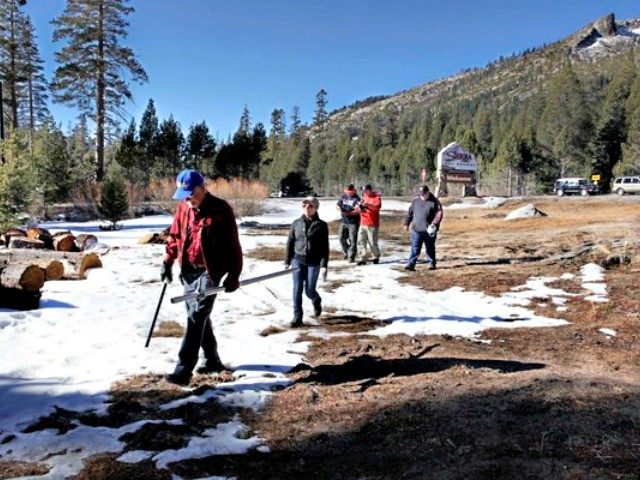In an op-ed for the Los Angeles Times, NASA senior water scientist Jay Famiglietti warned that California only has about one year’s worth of water supply left in its snowpack, reservoirs, and groundwater storage. If conservation efforts are not ramped up, and soon, the state could be facing a full-blown “crisis.”
NASA satellite data reportedly shows that the state’s water supply level was 34 million acre-feet below normal in 2014. Unfortunately, this year’s numbers indicate anything but improvement.
January of 2015 was the driest since the state began keeping rainfall records in 1895. Earlier this month, the Department of Water Resources (DWR) announced that the water content of snowpack measured at the Philips snow course in the Sierra Nevada mountains was just 0.9 inches, or 5 percent of the state’s March average. That water content level set a new, undesirable state record.
As for California’s underground supply, NASA has been sounding the alarm about dropping groundwater levels since October of last year. The rate of groundwater pumping has only increased since then. According to Famiglietti, a full two-thirds of the state’s 12 million acre-feet loss in water supply per year is due to excessive groundwater pumping.
While some recent minor storms brought in by a weak El Nino system allowed DWR to raise its state water allocation to 20%, the storms have done nothing to replenish the state’s reservoirs and snowpack, the most critical sources of drinking water for California residents. And farmers continue to get burned from both ends, as what little water supply they would have access to continually gets choked off by state bureaucrats.
“In short, we have no paddle to navigate this crisis,” Famiglietti wrote in the Times.
Still, the NASA scientist laid out several measures that could be taken immediately to help mitigate the worst of the drought’s effects.
With near-total awareness (94%) among the public of the seriousness of the state’s drought, Famiglietti urges California to implement state-wide mandatory water rationing, a step that has already previously been taken by cities like Santa Cruz on a voluntary basis.
“There is no need for the rest of the state to hesitate,” Famiglietti suggests.
Second, the scientist urges the swift implementation of the Sustainable Groundwater Management Act of 2014, a law that mandates the creation of regional groundwater sustainability agencies by 2017. At its current pace of implementation, Famiglietti argues, “it will be 30 years before we even know what is working. By then, there may be no groundwater left to sustain.”
Finally, Famiglietti wants California to create a task force of the state’s foremost water experts, independent of the agencies and organizations that have already been founded in response to the drought. This task force would plan long-term strategies to combat water shortages, including exploring methods of countering a potential “mega-drought” that could last up to 35 years.
California and other Western states look set to break March heat records this weekend through early next week. California in particular is expected to see temperatures rise 20 degrees higher than normal for this time of year.
Famiglietti writes in the Times that California is losing the initiative: “Today, not tomorrow, is the time to begin.”

COMMENTS
Please let us know if you're having issues with commenting.